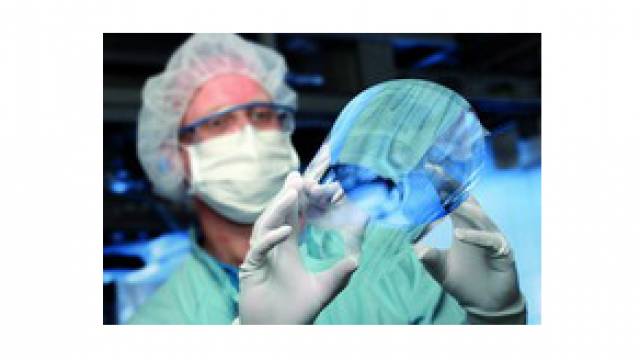· Strong market position in the areas of Pharmaceutical Systems, Home Tech, Electronic Packaging and Advanced Materials
· Withdrawal from polycrystalline photovoltaics to leave no lasting adverse effects on the company
· Investments in tangible fixed assets to increase to EUR 150 million in 2012/2013
German company SCHOTT has announced that it plans to rely on its strong core businesses Pharmaceutical Systems, Home Tech, Electronic Packaging and Advanced Materials to deliver growth in fiscal year 2012/2013 (1 October 2012 – 30 September 2013). “Because we still have so much innovation potential in each of these areas, we currently have no plans to enter into new segments, but will be relying on organic growth instead,” Prof. Udo Ungeheuer, Chairman of the Board of Management, emphasized at the annual results press conference. Each year, the Pharmaceutical Systems division manufactures special glass tubing and approximately 9 billion syringes, vials, ampoules and cartridges made of special glass and polymers. The Home Tech division, on the other hand, includes the strong brands Ceran® glass-ceramic cooktop panels and Robax® fireplace viewing panels. Electronic Packaging develops and manufactures advanced high-tech components for the electronics, automotive, energy and medical technology industries. All in all, SCHOTT expects to see a 3% increase in sales, improved results of operational activities (EBIT) and consolidated net profit in the mid-double-digit million range.
SCHOTT looks back on a difficult fiscal year 2011/2012. Besides lower sales volumes due to the slowdown in economic growth of the global economy, declines in price levels in certain fields and the weaker project business, which the company had anticipated, resulted in a 5% decline in sales to EUR 2.01 billion (2010/2011: EUR 2.12 billion). The regional distribution between Europe (43.9%), Asia (26.2%) and North America (23.3%) remained relatively stable. SCHOTT generated 86% of its total sales outside of Germany.
The difficult economic conditions, but also the development of the Photovoltaics division, had a significant impact on the past fiscal year. Massive excess capacity among module suppliers resulted in significant sustained declines in prices driven mainly by Asian competitors. Furthermore, unstable political conditions with respect to support for renewable energy in various countries exerted enormous pressure on the photovoltaics business. Due to the fact that no return to profitable growth could be expected for this industry, SCHOTT Solar AG decided to withdraw from the polycrystalline photovoltaics business in mid-2012. Pursuant to the regulations of IFRS 5 concerning the presentation of discontinued operations in the income statement for the year under review and the prior year, the Photovoltaics division was reclassified as profit (loss) from discontinued operations.
The results of operational activities (EBIT) amounted to EUR 138 million in fiscal year 2011/2012 following EUR 214 million the previous year. The declines in volumes and prices compared to last year could not be fully compensated for by increases in productivity and cost reductions. Furthermore, one-time factors, restructuring measures, in particular, had a negative effect on EBIT. The discontinued polycrystalline Photovoltaics division was largely responsible for the consolidated net loss of EUR 278 million (previous year: consolidated net profit of EUR 109 million). On 30 September 2012, the SCHOTT Group had 16,100 employees all over the world, 5,500 of whom are based in Germany.
SCHOTT also finds itself facing difficult conditions in the current fiscal year due to the current slowdown in the growth of the global economy and the ongoing European debt crisis. “We still feel that we are well-prepared for this challenging environment and look forward to the future with optimism. One main reason is that we generate well over half of our sales in areas in which we rank among the world’s leaders,” Prof. Ungeheuer explained.
In addition, a number of very promising products are currently being launched. These include XensationTM Cover, an extremely strong cover glass for use in smartphones, the high-performance glass- ceramic NEXTREMATM that demonstrates its strength particularly in high-temperature environments of 400-950°Celsius, Pyranova® secure, a safety glass product that prevents fire, smoke and heat radiation from spreading in the event of a fire and also offers protection against break-ins and small arms fire, as well as the high-purity glass optical fiber PURAVISTM for use in medical and industrial applications. Furthermore, SCHOTT currently has the capability of manufacturing the world’s thinnest glass with the help of a continuous production process and then rolling it up onto a roll. This ultra-thin material only 25 micrometers thick – a human hair is between 80 and 120 micrometers thick – thus offers advantages in the area of industrial processing, for instance in electronics or lighting technology on the basis of OLEDs. In addition, SCHOTT is also currently developing components for innovative lithium-air batteries for use in electric and hybrid vehicles. The goal is to improve their reliability and increase their life expectancy.
SCHOTT expects growth impulses for its business to come mainly from Asia in 2013. The technology group already has 12 manufacturing sites and 7 sales offices here that employ a staff of 3,000. Japan, China and India are its most important markets. By opening a state-of-the-art plant in India at the beginning of February, SCHOTT has further extended its strategic position in the Asian pharmaceutical packaging market. The new production site in Jambusar in the state of Gujarat is considered to be the first fully automatic production facility for pharmaceutical packaging on the subcontinent and currently includes 20 manufacturing lines for ampoules and 16 lines for vials.
SCHOTT also plans to increase its investments in tangible fixed assets in fiscal year 2012/2013. Whereas only EUR 99 million were spent in 2011/2012, EUR 50 million in investments are planned for investment this year. The main focuses will be on the areas Pharmaceutical Systems, Optics and Home Tech.






